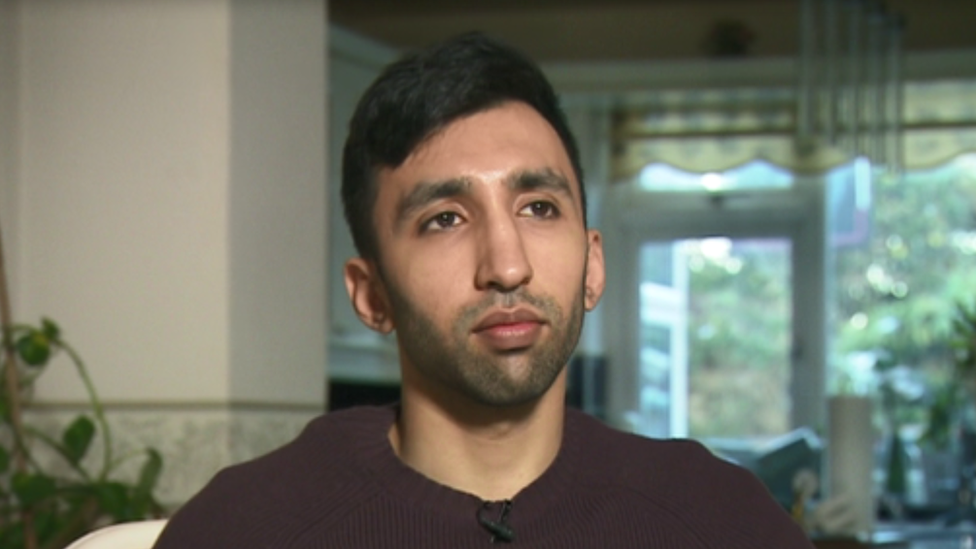West Midlands junior doctors join four day walk-out
- Published
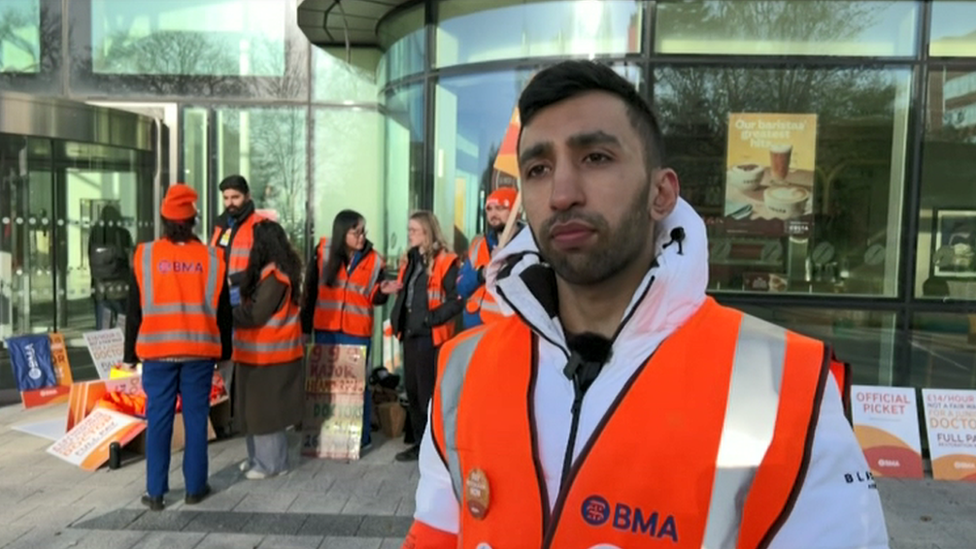
Dr Shivam Sharma, said NHS workers had taken to the picket lines as a "last resort"
Hundreds of junior doctors across the West Midlands are taking part in a national four-day walkout over pay.
Members of British Medical Association (BMA) across the region are asking for a pay rise of 35%.
More than 250,000 appointments or operations could be cancelled due to the strikes.
England Health Secretary Steve Barclay said union demands were not "fair or reasonable" and said the timing of them put patients at "greater risk".
A spokesperson for No 10 said the demands were "completely out of step with pay settlements in other parts of the public sector" and would cost about £2bn.
They added a 35% pay rise would mean a £20,000 increase for some doctors.
The BMA had previously said it would suspend strike action for a "credible offer" and said the pay demands followed years of real-terms cuts.
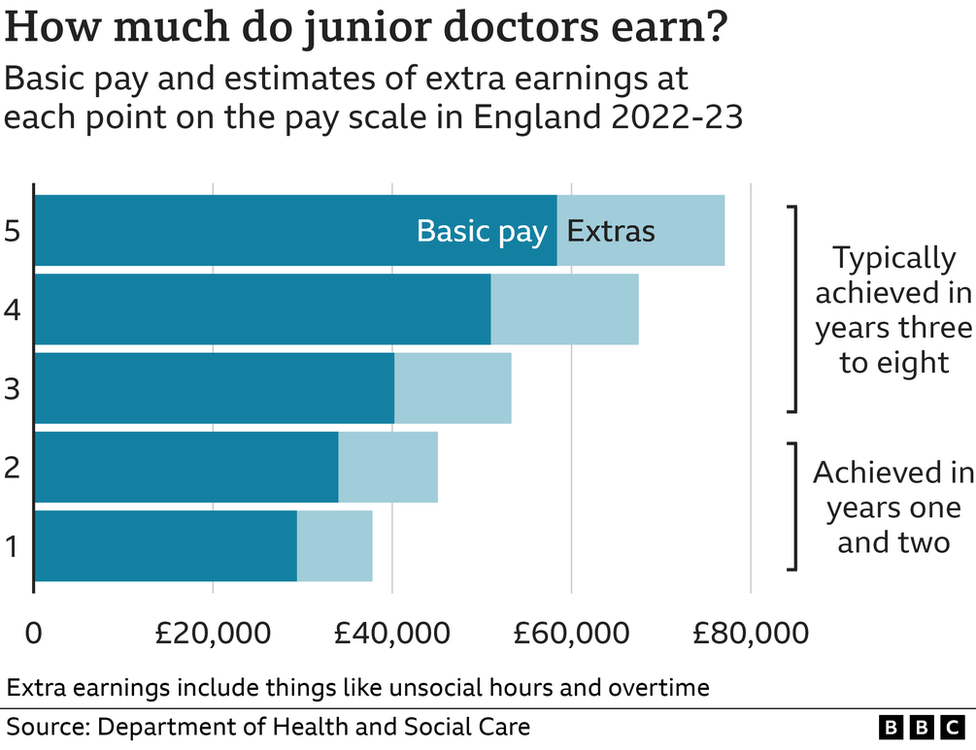
Dr Shivam Sharma, who works in Birmingham, said it was crucial to retain doctors, many of whom were feeling burnt-out and under-valued.
"We need to keep talented doctors that we have here, if we're going to solve the crisis that the NHS is in," he said.
"My first year, halfway through the year I was thrown into the midst of the pandemic, [at the time] no vaccine, no PPE. Put my health at risk, put my family's health at risk."
Dr Sharma qualified four years ago and said medics had been rewarded for their "tireless hard work" with further "demoralising" pay cuts.
He added his own experience as a patient showed something needed to be done.
"Patient safety is at risk on non-strike days. You used to be seen within four hours in A&E and now you're lucky to be seen in 12.
"Just the other day I was calling the GP surgery and I was caller number 80 in the queue.
"If we continue at this current trajectory, patients lose and doctors lose."
Unlike recent strikes by nurses and ambulance staff, there is no agreement by unions to exempt certain emergency services to protect patients.
However, the BMA said there were plans to pull doctors off picket lines if lives were in immediate danger.
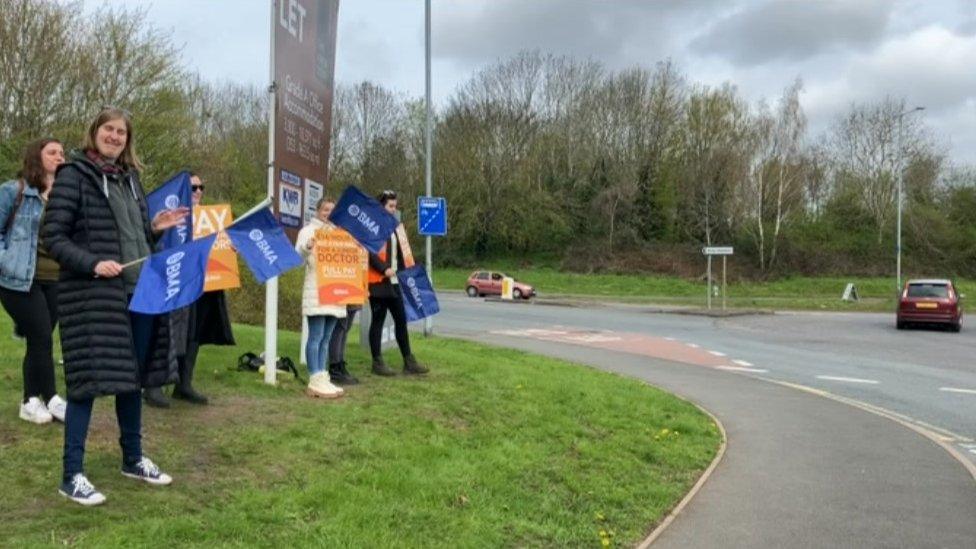
Doctors picketed in Worcester, as well as in Coventry, Hereford and Redditch
The government said by starting the strike after the Easter weekend it would "maximise disruption" and increase the risk to patients.
It is thought more than a quarter of a million appointments and operations could be cancelled during the four-day walkout.
Prof Sir Stephen Powis, NHS England's national medical director, described it as "the most disruptive industrial action in NHS history".
'Last resort'
Picket lines have formed outside hospitals in Birmingham, Coventry, Hereford and Redditch.
Dr Sharma said those taking part had not wanted to strike but said it was a "last resort" after facing a real-terms drop in pay.
"Junior doctors start on a salary of £14 per hour," he said.
"What full pay restoration is, is a mere £5-10 increase in the hourly salary of our workers.
"Ultimately, the patients of this country deserve better and doctors in this country deserve better."
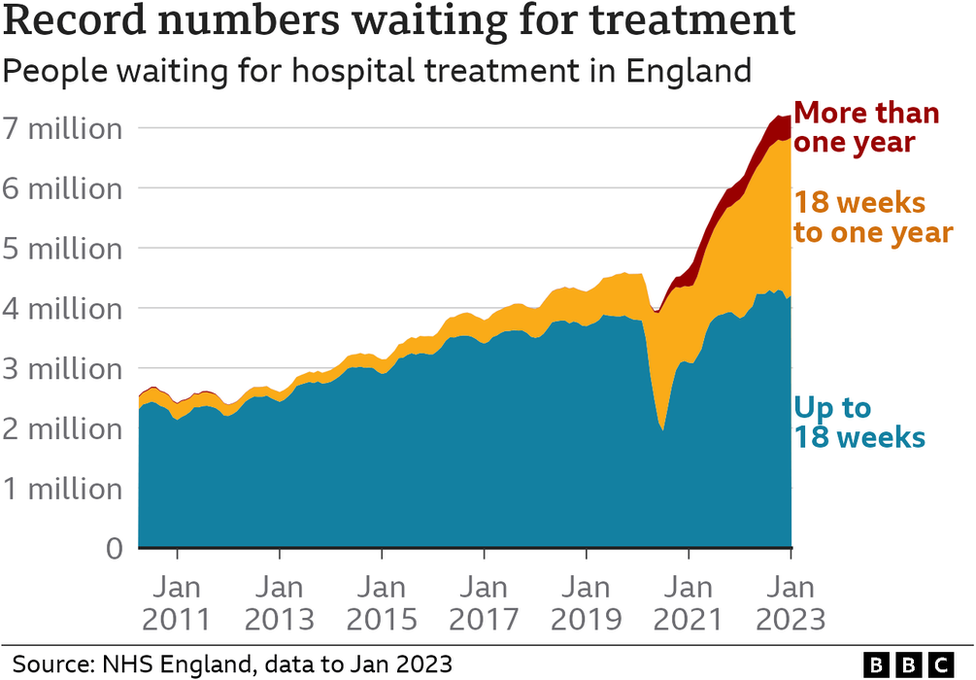
Only doctors fresh out of university receive £14 an hour in basic pay, although that is also boosted by about 30% in extra payments for things like working unsociable hours.
Pay increments increase from year two as they start to gain experience, with basic salary once again supplemented by extra payments.
However, as well as facing large student debt, many doctors have also cited the hidden cost of training even after qualifying, such as taking exams.

Follow BBC West Midlands on Facebook, external, Twitter, external and Instagram, external. Send your story ideas to: newsonline.westmidlands@bbc.co.uk, external
Related topics
- Published11 April 2023
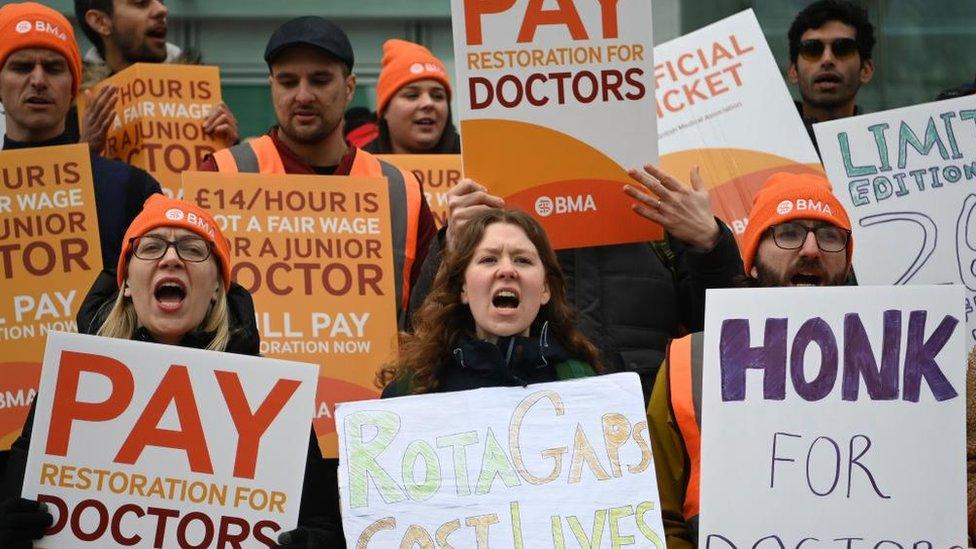
- Published18 May 2023
- Published11 April 2023
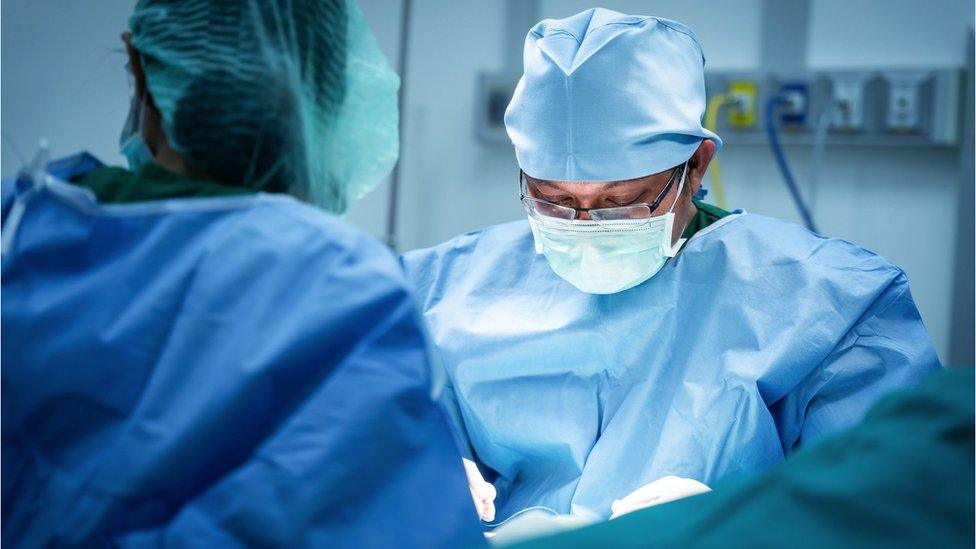
- Published8 April 2023
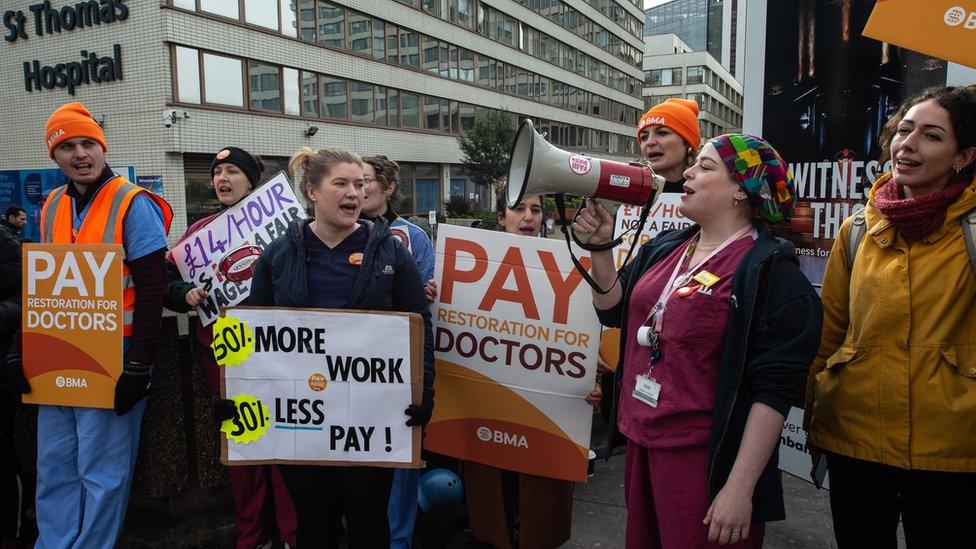
- Published6 April 2023
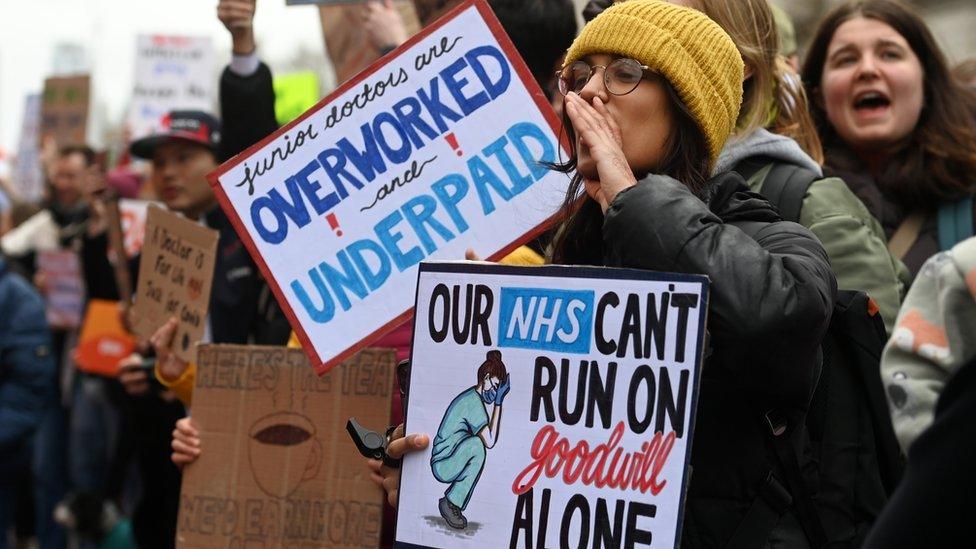
- Published13 March 2023
